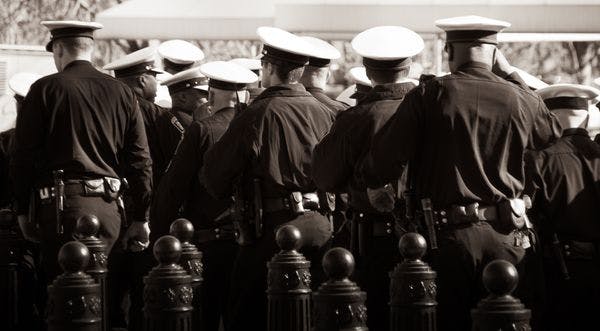Police are fueling increased overdoses, transmission of HIV and viral hepatitis
By Alexandra Olsen
Every day there is a new headline highlighting the devastating effects of the current opioid crisis on individuals and their communities – from record overdoses to widespread transmission of hepatitis C. This has started a dialogue, urging public officials to treat drug use as a medical issue rather than a criminal one. States across the U.S. are responding to this as a public health matter – passing 911 Good Samaritan and naloxone access laws, opening of syringe exchanges, and increasing access to Medication-Assisted Treatment. It seems that, now more than ever, we are amidst a shift in how society deals with problematic drug use.
So then why, in the midst of a public health crisis, are police around the United States confiscating clean syringes and naloxone from the most vulnerable drug users – the homeless? This may sound absurd, but across the United States there have been reports of law enforcement seizing clean syringes and naloxone from homeless drug users that were lawfully obtained at health service providers.
Imagine being a homeless intravenous drug user who’s trying their best to prevent the contraction of HIV or Hepatitis C. To get to the needle exchange, you first have to make arrangements so your possessions aren’t stolen, then you take public transit, make sure you get to the exchange on time, wait in line for services, and then trek back to your camp. You put in the effort to keep yourself healthy, only to have these same supplies confiscated by police a few hours later. Confiscation of your consumption equipment forces you to resort to sharing syringes and other hazardous consumption practices. The end result is increased risk of fatal overdose, HIV and hepatitis C transmission – all thanks to law enforcement improperly enforcing laws designed to protect drug users, not hurt them. It’s easy for people to blame drug users for their health issues, but it’s becoming even clearer that, like most of the enforcement of the failed drug war, often it is the police fueling these adverse consequences of drug use.
Click here to read the full article.
Keep up-to-date with drug policy developments by subscribing to the IDPC Monthly Alert.
Thumbnail Flickr CC Victoria Pickering
